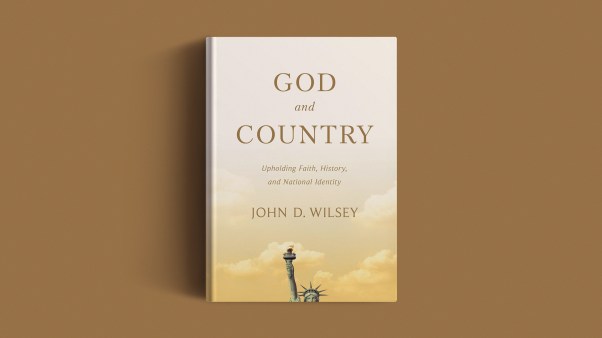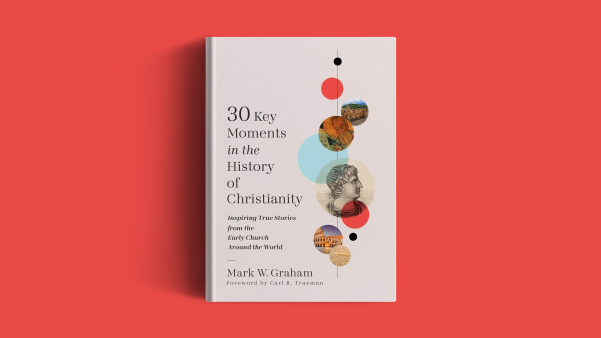Since early September, the Trump administration has struck suspected drug-carrying boats in the Caribbean Sea, provoking Latin American nations who see the attacks as a direct affront. Thus far, the administration announced, US forces have attacked ten boats and killed at least 43 people. Last week, the administration expanded its purview, attacking two boats off the coast of South America in the eastern Pacific Ocean.
After the first boat strike, The Bulletin sat down for two conversations to see how Christians can consider this news through the lens of human dignity—one with senior contributor Mike Cosper and editor at large Russell Moore, the other with homeland security expert Elizabeth Neumann. Neumann formerly served as assistant secretary for counterterrorism in the first Trump administration.
Here are edited and condensed excerpts from those discussions.
Americans are rightly concerned about the drug trade to the United States. Do these actions from the Trump administration signal a desire to do something decisive about drugs and addiction?
Russell Moore: I do think President Trump has a genuine concern about addiction issues. He often references his brother, who succumbed to alcoholism after many years of struggle. There was, at one time, a moral disapproval of anyone who had a drug problem; but today, almost every segment of American life realizes we have a nationwide problem with drugs, opioid addiction, and fentanyl deaths. Almost everybody also recognizes there are some external forces here that are taking advantage of people in pain.
Mike Cosper: If these boat strikes constitute a war on drugs, there’s no precedent for this. The president is authorizing lethal force without the approval of Congress. In contrast, there is precedent for the navy or the coast guard to interdict these vessels, raid them, and arrest the people aboard. I have no sympathy for drug traffickers or terrorists whatsoever. That these summary executions took place by executive authority, with no clear legal authorization, says a lot about our culture that I think is deeply disturbing.
Elizabeth Neumann: Even if a boat were firing on us, it still would be unprecedented to take an entire boat out in our Western Hemisphere when you’re not in the middle of an active war. At least, then, you could argue that we were acting in self-defense. None of that appears to be at play.
When I served in the first Trump term, the administration was actively evaluating whether to designate cartels as foreign terrorist organizations. The steady hands of the counterterrorism community made a compelling case for why you didn’t want to do that. We were concerned that, by opening the aperture of how counterterrorism tools get used, the federal government could do a host of otherwise unacceptable things. If that authority was abused, the courts would stop it. We need those tools to keep America safe and bad actors at bay.
Even with a terrorist designation, the government has to take detailed steps to do lethal attacks like this. It is a very rigorous process of identification and an evidence path that says why we believe particular people are a threat to the United States. You must present to lawyers enough evidence to demonstrate that they have proactively caused harm to the United States.
Moore: This is an important issue for Christians not just because of American constitutional questions, which we ought to be concerned about. In the Christian tradition, Romans 13 is a passage we have used to try to unpack what Scripture teaches about war. Romans 13 seems to give legitimate authority to the government to carry out war and police powers, for those of us who aren’t pacifists at least. Other restraints on power come throughout Scripture. Augustine and those after him developed “right authority” in this understanding of military power. War requires not just the right intention to be carried out ethically and morally: it has to be done by a right authority.
In the American system, that right authority is Congress. There’s a lot of latitude in terms of the outworking of that authority, but Congress ultimately holds this power. That’s why we ought to be really concerned about this. For Christians, these acts are a moral problem and a theological problem, not just a constitutional one.
It could be argued that the previous way of handling the drug cartels wasn’t working, and President Trump is a wrecking ball to provoke dramatic, needed change. How do you respond to that?
Cosper: You hear this a lot: The system’s broken, the drugs are getting in, the gangs are getting in, there’s violence in the streets. There’s truth to that. The question we must ask is, What kind of government do we want to be living with? Do we care about the expectation of accountability? Those who say the system was broken are right, but due process and precedent matter. God made all human beings in his image. Scripture says not to glory in the death of evil men (Prov. 24:17–18).
Moore: I do agree with the way that President Trump and Secretary Rubio are labeling the bad guys: Narco-terrorist gangs are villains. President Maduro is a villain. His authoritarian regime is unsafe for people. But will that labeling have any effect on how we see Venezuelans who have come to the United States seeking refuge illegally and are now being sent back? You have the worst of both worlds in Venezuela—the authoritarian strong man, and anarchy and chaos with these roaming gangs.
Neumann: This opens up scrutiny for the world to make a case that we violated international law here. Certainly, Maduro is not happy about this. I’m not a fan of his. I’m not trying to defend him; but if we’re going to declare war in Venezuela, you really need to consult with Congress on this, if that’s what this was about.
These strikes make me very uncomfortable that we are now putting military men and women in harm’s way. If it was a drone strike, you’re not physically putting them in harm’s way, but we have ships out there now. We have members of the US Navy sitting off the coast of Venezuela, and Venezuela now actually has legal reason to retaliate. We gave them that legal reason. Are they going to do that? Probably not. There’s such an asymmetry there in terms of our power and their power, but it does put our troops in harm’s way. We should have taken that into account through all of the normal processes we use when we decide to use force.
You become an authoritarian regime by watching abuse of power against other people. All of a sudden, you’re the only one left; and, because you didn’t stand up for those guys, there’s nobody to come save you. We could approach this in lots of legal ways, judiciously with due process. This doesn’t have any of that.
We’re seeing a similar flex of force with immigration roundups, with the deployment of the National Guard in cities–a pattern of not wanting to be constrained by the rule of law, not wanting to follow the process that the system requires in order to ensure that our constitutional rights are not violated.
I certainly appreciate that sometimes the government moves really slowly. As an executive branch official, I was often frustrated by that. There’s plenty of room for improving the speed of government to be able to deal with threats, but you cannot skip the process altogether.
If we believe that all men are created equal and endowed with their creator to the right of life, then it doesn’t matter if they’re American citizens or not. That’s our value as a country—that their lives matter. Even if they’re doing something wrong, their lives matter. Due process should be applied before a life is taken. As a Christian, I am also concerned that we are so willing to be performative and to demonstrate our power. We quickly snuffed out lives, and there wasn’t actually a real threat as far as we know.
Venezuela and President Maduro aren’t the only ones concerned. Mexico is concerned as well, and we need the cooperation of that ally as we try to figure out the difficulties surrounding immigration. What do we risk damaging in that relationship with actions like this?
Moore: There are so many complexities involved. On the one hand, we want a good relationship with Mexico; but Mexico has pitifully responded to the very real drug problem that is coming from there, not just with the gangs and the cartels but with the actual trafficking of drugs. We do have the right to expect more from them.
Cosper: A war against the drug cartels is very expensive, very complicated, and would require a certain kind of military sophistication. Does Mexico have what it takes to actually prosecute that and pull it off without us? I’m not confident that they do, and I think that’s part of why the situation looks the way that it looks.
Neumann: It’s important for us to remember that the world we get to live in now, that we are taking for granted, is actually rare in human history. We got here by recognizing all of the ways that power corrupts, all of the ways that it can abuse the minority or the weaker party. We set up systems and structures to constrain that, to restrain that power so that it’s harder for the abuse to occur.
There’s a sadness and a weightiness to this. We need to figure out how we as citizens and as Christians can stand up for those who are experiencing the abuse today and be able to call our government to account. We must say, We expect better out of you. We expect you to respect the dignity of life. People deserve due process before they are killed.
Because of the way that we interact with information online, it is easier to rile us up and keep us angry. A 2024 University of California Davis study reported that 26 percent of Americans believe violence is justified to achieve a political aim. With that number so high, I do think we have a pretty large group of Americans who are willing to say, “Forget the law, forget due process, forget your rights.” I just want this fixed. For example, the previous administration’s handling of the border was a disaster. That has led to people being very willing to say, “I don’t care how he does it; just fix it.”
The problem is that when you start pushing the line and abusing your authority in one space, you end up doing it in many other spaces. Because of that tendency, it is important that Americans speak up now and say that what happened wasn’t okay—pushing back with our voices, calling our representatives, calling the White House. We can say, “I am not comfortable with how my government is acting right now. They need to follow the law. They need to follow the Constitution. They need to respect that all life matters.” We can also pray. There is definitely a spiritual aspect to our culture’s devaluing of life. We have to acknowledge that there are unseen forces that we war with here too.
As Christians, we have answers for this world’s numbness, loneliness, and lack of meaning and purpose. We can be at the forefront of solving this problem, but it’s not through politics. It’s not through culture warring. It’s through doing the very unexciting work of loving our neighbor in practical ways, especially the people who are very tough to love. That’s how we heal culture.














